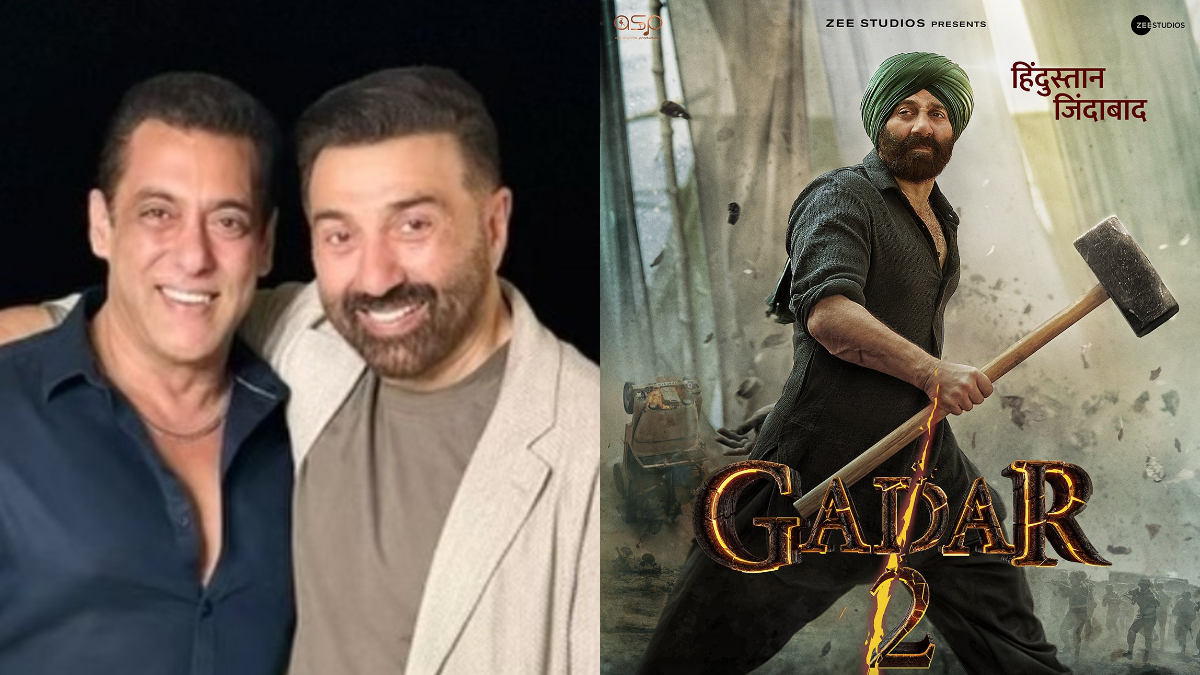Sunny Deol had one of the most successful debuts of all time when his film Betaab in 1983 ran to packed houses for a week. As years passed by, he was hailed as the next ‘Angry Young Man’ of Hindi cinema after Amitabh Bachchan. His rage shaped into an identity of their own and his lethal following wanted him to beat the bad guys to pulp. His brand of cinema is a part of the modern day pop culture. When he screams, the box-office roars. He went through a low for over two decades but made a sensational and historic comeback with the monstrous Gadar 2 in 2023.
The actor is now gearing up for his new film Jaat that releases in cinemas on April 10. In an exclusive interview with Firstpost, Deol spoke about his idea and definition of mass cinema, how content has evolved over the years, and if the industry today lacks the support the actors of his generation saw among their contemporaries.
Edited excerpts from the interview
Ever since the pandemic, people have been saying they want to watch mass cinema. How would you define it?
I definitely consider myself to be a mass. 99% of our audiences are people who want to come to cinemas. They did not think about money back in the day because cinema viewing was a feasible experience. It’s become little expensive today and that’s the reason they don’t go in large numbers. They want to watch the kind of films that have a good story and something they can relate to. They want to watch heroism and stories that they wish were true. And that’s when you see numbers go to such heights.
We all have seen the kind of success Bobby Deol has seen with Aashram and Animal. How much do you feel content has evolved or changed over the years?
Content is going to keep changing according to the society and what’s happening around us. Cinema is a reflection of the society and it has always been like that. Suddenly, our society became very city oriented rather than country oriented. There were so many classic movies that were made earlier that were ahead of their times. The same thing is happening right now. We are getting glimpses of what we are living in our times.
Why are the audience is not going to the cinemas in as large numbers as they used to before? What’s stopping them?
They come to the cinemas when they have to watch a film and they will not come if they don’t want to watch a film. What I feel is that always tell a story with honesty. Don’t think what the audiences are liking because you are also a part of them. I am not a buyer of all that. We are simple people, give us a good story and we will watch it. When we talk about the other kind of cinema that is existing, the Box Office of the film always depends on its cost. We have started making a lot of noise about ‘itna number hona chahiye and all that.’ People should realize kuch filmon ki taaqat wahan tak hi hai. If a film that is made at a budget of 10 crore makes 20-25 crores, it’s a successful film. This debate will keep going on and on. I have seen this over the years.
Salman Khan recently wished your for Jaat. The entire industry came together to celebrate the success of Gadar 2. Does it make you happy to see so much industry support pouring in which is clearly missing in today’s times?
What we see and what we don’t see are two different things. Happiness is not something people see. If they have it, they will come and celebrate with you. If it comes organically, it feels so nice. When my film Gadar 2 released, obviously it was so successful. It was something that happened after so many years. I hadn’t seen something like that, the way things were happening. Cinemas were shutting down so we didn’t get them but suddenly they reopened. Unreal things started happening. The industry people also liked it and loved it. Everyone came together and it was just a feeling of love and happiness and nothing more than that. I had tears in my eyes all the time because I could not believe I was getting so much love around me.
Working as an Entertainment journalist for over five years, covering stories, reporting, and interviewing various film personalities of the film industry
)